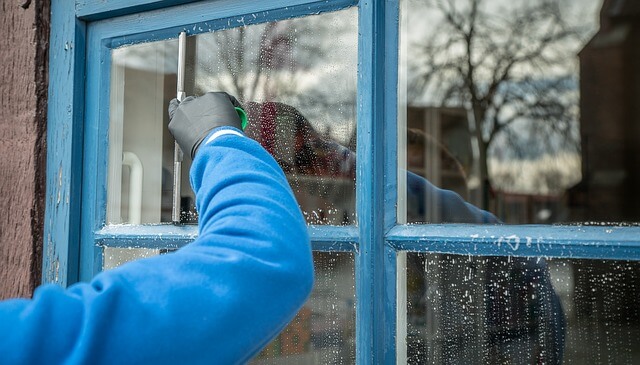

Just like anything else in your home, to keep things looking good and ensuring functionality, regular maintenance is something you should keep in mind. This goes especially so for windows and withstanding the unpredictable weather of New England. Below are seven tips to help you prepare your home’s windows for the summer conditions.
Check Weather Stripping
One of the first things you want to do at the start of each season is to check your window’s weather stripping. Weather stripping is an airtight material that is used to insulate the space between the window sash and pane. While the stripping is made of durable materials, over time-fighting against harsh weather conditions can cause the material to deteriorate. If you do not check for deterioration in the weather stripping off your window then you may run the risk of your home leaking during rain. In addition, deteriorated stripping could cause your homes energy efficiency to decrease as hot and cold air will enter your home. This could cause your heating and electrical bills to increase. If you notice any cracking or dry stripping you should consider replacing it at once.
Check Window Caulking
Aside from checking your window’s weather stripping, you should check the caulking as well. Caulking serves as a barrier in the spaces between your windows and the siding of your home. As with stripping, over time the material for the caulking will start to deteriorate. As with stripping, if you have inefficient caulking then it could lead to increased bills as your home’s energy efficiency won’t be up to par and your home will have to work extra hard to keep the residents comfortable.
Clean Windows Inside & Out
Over the lifecycle of your windows, debris and dirt that will appear can break down the surface of your windows. This will ultimately decrease the life of your window if you do not properly clean your windows inside and out. Below are some cleaning tips to ensure your window is ready to go:
- Use a mixture of soap, water, and window cleaner.
- Start cleaning from top to bottom of every window.
- Make sure to remove all cleaner from the windows to avoid streaking and glares.
- Make sure to properly dry your window and the sills to prevent any mold or mildew from forming.
Check For Leakage
When it comes to living in New England, you can expect a lot of precipitation in the form of either rain or snow. With this in mind, you should examine the windows of your home for any signs of leaks. If you see any leakage points you should look into fixing these problem areas or replacing your window completely. Any leaks can run you the risk of having mold appear around your windows, which is never a good thing.
Check Window Hardware
While windows are great for letting natural light in and keeping out rain and snow, they need to function properly to truly be an asset to your home. In the rare case of a fire or emergency, windows can be a quick exit to safety, so you will want to make sure your windows open and close properly and that all of the hardware that came with the window to make it function works.
Check Window Panes
A common theme in this piece, but important nonetheless, is making sure that you do not reduce the energy efficiency of your home. Another way this could happen is if you have cracked or broken window panes. Just like with your windows, if there are broken panes that cannot be fixed you will need to replace them as soon as possible.
